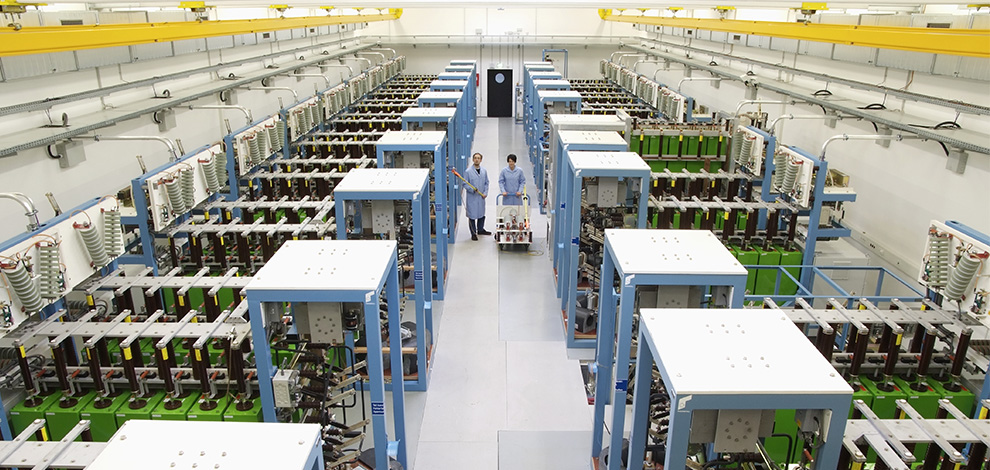Am Montag, den 26. Mai 2025, um 12:00 Uhr c.t., findet der nächste Termin unseres Physikalischen Kolloquiums statt.
Prof. Dr. Jochen Wosnitza ist Direktor des Hochfeld-Magnetlabors des Helmholtz-Zentrums Dresden-Rossendorf und Professor für Physik in hohen Magnetfeldern an der Technischen Universität Dresden. Er hält einen Vortrag zum Thema „Materials Research in Very High Magnetic Fields“.
The application of magnetic fields is a commonly used instrument in materials-science research, since this allows to study, modify, and control the state of matter. Thereby, research at the highest possible magnetic fields becomes increasingly important. The High Magnetic Field Laboratory Dresden (Hochfeld-Magnetlabor Dresden, HLD) at the Helmholtz-Zentrum Dresden-Rossendorf (HZDR) makes available pulsed magnetic fields up to the 90 T range, on a 10 ms timescale, for internal and external users. In the pulsed magnets, a variety of experimental methods are available, enabling to measure, for example, electrical transport, magnetization, dilatometry, ultrasound, ESR, and even NMR with very high resolution. As a unique feature, a free-electron-laser facility next door allows high-brilliance radiation to be fed into the pulsed-field cells of the HLD, thus making possible highfield magneto-optical experiments in the range from 5 to 250 μm. In-house research of the HLD focuses on electronic properties of strongly correlated and topological materials at high magnetic fields.
This includes the investigation of frustrated magnetic materials and the determination of Fermi surfaces of topological and correlated metals by means of measurements of magnetic quantum oscillations. We further investigate unconventional high-magnetic-field states of novel superconductors, but, beyond that, even field-induced plasma waves in liquid metals. Here, I will present a brief overview on the experimental infrastructure and discuss some highlights, with a focus on superconducting materials, of the in-house research at the Dresden High Magnetic Field Laboratory.
Abstract des Vortrags von Prof. Wosnitza.
Prof. Dr. Ilya Eremin gibt eine Einführung in den Vortrag.
Die Fakultät lädt alle Interessierten herzlich ein. Die Veranstaltung findet im Hörsaal NB 3/99 statt.
Alle Termine des Physikalischen Kolloquiums finden Sie hier.
Bild: Kondensatorbank des Hochfeld-Magnetlabors Dresden, © Helmholtz-Zentrum Dresden-Rossendorf


